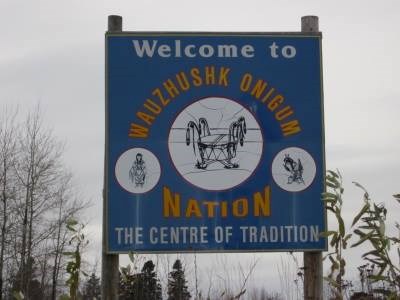TORONTO — A Divisional Court ruling has dealt a blow to the efforts of a Kenora-area First Nation to establish a casino on its reserve.
Wauzhushk Onigum Nation went to court in Toronto in April seeking a judicial review of the process that led to the Ontario Lottery and Gaming Corporation awarding Gateway Casinos the licence for Kenora.
The lawyer for the community says the court's decision this month to dismiss the application has left her and her clients "grossly disappointed."
Kenora is part of the so-called northern bundle of centres approved for gaming operations, which includes Gateway's casino in Thunder Bay.
The company has stated that it will spend $21 million to build a gaming centre in Kenora that will open in 2020, with 6,200 square feet of gaming space and 200 slot machines.
In 2016, OLG selected Gateway as the operator over another bidder, Leaf Entertainment Group, for a term of at least 20 years.
Leaf had struck a deal with Wauzhushk Onigum, which is located near Kenora, giving it a 20 per cent interest in its casino if it was the successful bidder.
The First Nation already had a history of licensed gaming activity.
In 1994, under an agreement with the Ontario government, it opened the Golden Eagle bingo hall which also offered table games.
Ten years later, the province extended the agreement on the condition the facility operated only as a charity bingo hall.
Wauzhushk Onigum Nation, however, retained its long-standing interest in expanding Golden Eagle into a full casino including slot machines and communicated its wishes to OLG officials.
Despite their partnership, Leaf's application for the northern bundle proposed locating a casino in Kenora, not on the WON reserve.
After Gateway got the nod from OLG, the First Nation approached it in 2017 to see if the company would consider placing its casino at Wauzhushk Onigum and discuss a revenue-sharing arrangement.
When nothing developed out of that, Wauzhushk Onigum last year filed a request for judicial review of the government's and OLG's actions related to the Kenora casino, based on a number of grounds.
In dismissing the application, three justices ruled that the provincial cabinet's decision in 2012 to allow a casino in Kenora and to develop it through a competitive bidding process is not subject to review in court.
They ruled, as well, that the decision to bundle the Kenora site with other facilities in the north is not reviewable by a court.
The judges' decisions on other questions raised by the application also came down against WON, including:
- whether there was a denial of WON's right to procedural fairness
- whether OLG improperly failed to carry out its discretionary power to award "bonus points" for bids that included First Nations participation
- whether OLG and the government breached the legal duty to consult and accommodate First Nations
OLG and the province filed their own motion, heard at the same time as the bid for judicial review, to dismiss WON's application on the basis it was filed six years after the key decisions to proceed with a Kenora casino had been made in 2012.
"This is an excessive delay by any measure," the court agreed.
The judges noted that WON initially chose not to challenge the decisions, electing instead to "participate in the process, joining in partnership with Leaf" before seeking negotiations with Gateway and congratulating Gateway on its success.
"While Won has suggested it was 'led down the garden path' by OLG and the Minister [of Finance], the record does not support that assertion. WON made choices and acquiesced in the procurement process," the court's ruling states.
Kate Kempton, the Toronto lawyer who handled the case for WON, says the legal system "has failed justice for First Nations in this instance."
In an interview with Tbnewswatch, Kempton said the court "seemed to see this as a purely commercial venture" rather than accepting that the province was obliged by law to ensure a fairer process for engaging with Wauzhushk Onigum on its proposal to host a casino.
"We were seeking to have the underlying purpose of the constitutional law and the facts of colonialism in Canada and the impoverishment of First Nations at the hands of the Crown and settlers ground decisions in this case that may have advanced the application of Canadian law to First Nations, but that was outright rejected by this court," she said.
As of Wednesday, Kempton had received no instructions from the First Nation as to whether to file an appeal.
OLG declined to comment until the window for an appeal is closed.
A spokesperson for Gateway did not immediately respond to a request for comment.
